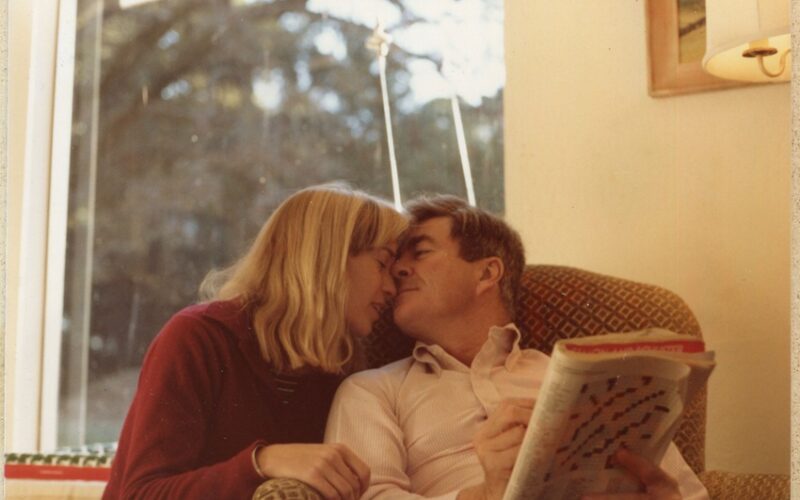Helen and the Bear (Blair, 2025)
The Full Frame Documentary Film Festival has announced its programming for the 2025 festival, and one of the most anticipated films is Helen and the Bear.
The film, a portrait of Helen Hooper and details her forty plus year marriage to Pete McCloskey. It comes to the festival with two IDA nominations (for Best Cinematography and Best Editing) and a timely topic that turns out to be a bit of a red herring.
Given that the film identifies McCloskey as a Republican even though he changed parties in 2007 and Hooper as a “Queer Rebel,” it is perhaps understandable that I went into the film expecting a chronicle of a marital union of political rivals. Instead, the film focuses almost exclusively on Hooper and the internal conflict between her heart’s desire for the man she has and her mind’s disdain of the institution that binds them together.
I guess any honest review of the documentary has to begin with the response that I did not particularly like Hooper — not that the woman as she is presented would probably care in the least. Originally an aide in McCloskey’s office, she becomes his second wife for reasons that are more immediately clear from his perspective than hers.
Her inability to verbalize why she stayed with him even though she hates the institution of marriage provides the film with some poignancy, but it can also cause exasperation. She admits to having a lesbian affair while married, and she claims that McCloskey confessed to having his own extra-marital affairs as well. At least one of McCloskey’s adult children participates to tell a fairly typical modern story of divorce being family/life 2.0 for the father whose public life trumped his personal life during her lifetime. Did I mention marriage does not come off well in this film?
Perhaps I am the embodiment of the wrong audience for such a film. White, male, Christian — I guess I care more about marriage as an idea and an ideal even if I try to practice compassion for those who have come to think it is nothing more than a patriarchal tool to perpetuate the power and privilege of half the population.
I am not sure that I want to chalk up my inability to connect with the film to differences in ideology alone, though. As McCloskey approaches his death, the film wrestles with universal questions and illustrates universal emotions. How is it possible to see the gradual loss of a human soul to whom one’s life has been intertwined without some of the bittersweet melancholy oozing through the screen? Perhaps if Helen and the Bear had focused more on this final chapter of a strained and strange relationship, I would have appreciated it more.
Helen and the Bear will screen Sunday, April 6 at Full Frame in Durham. Individual tickets are available in addition to redemptions for passholders.

